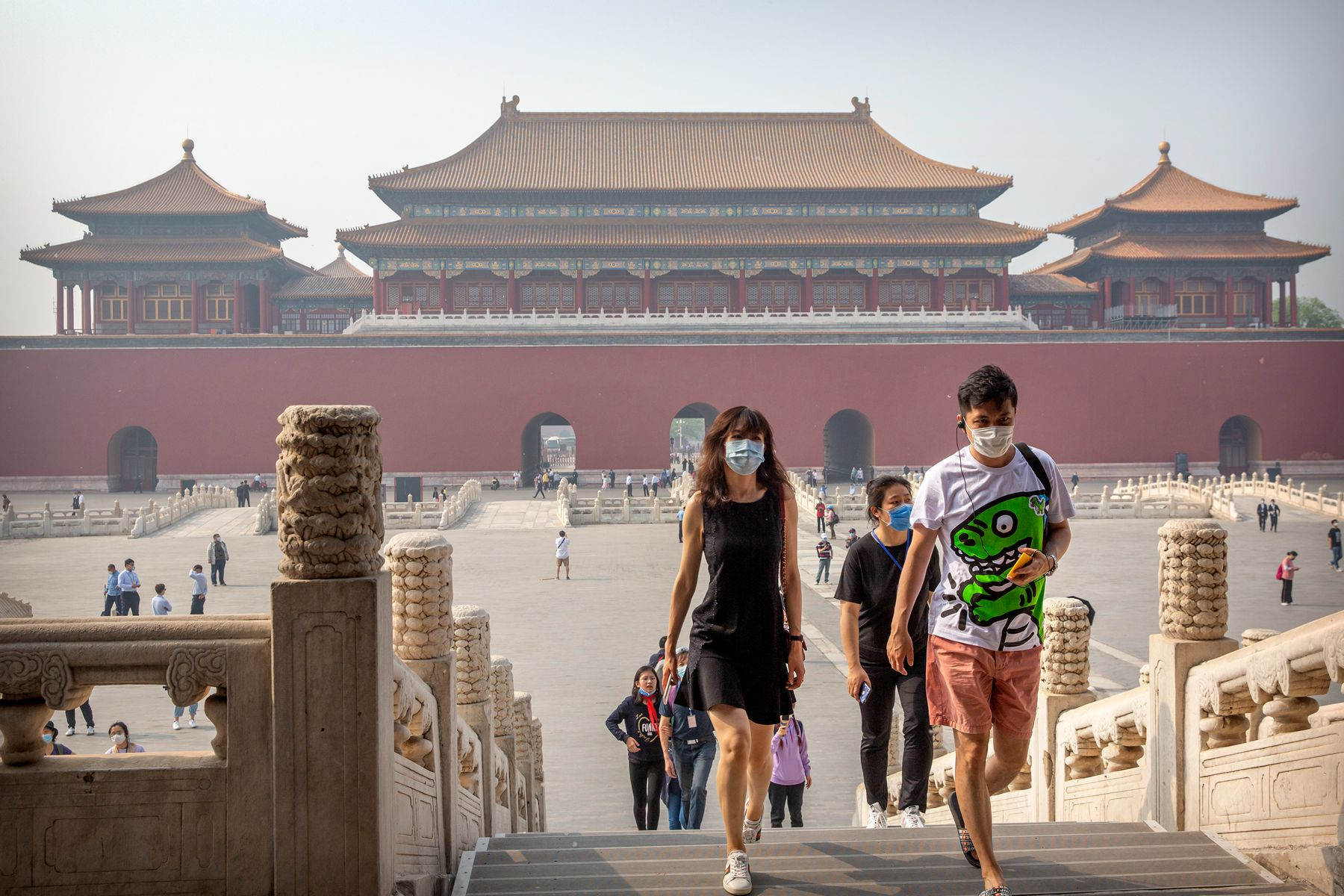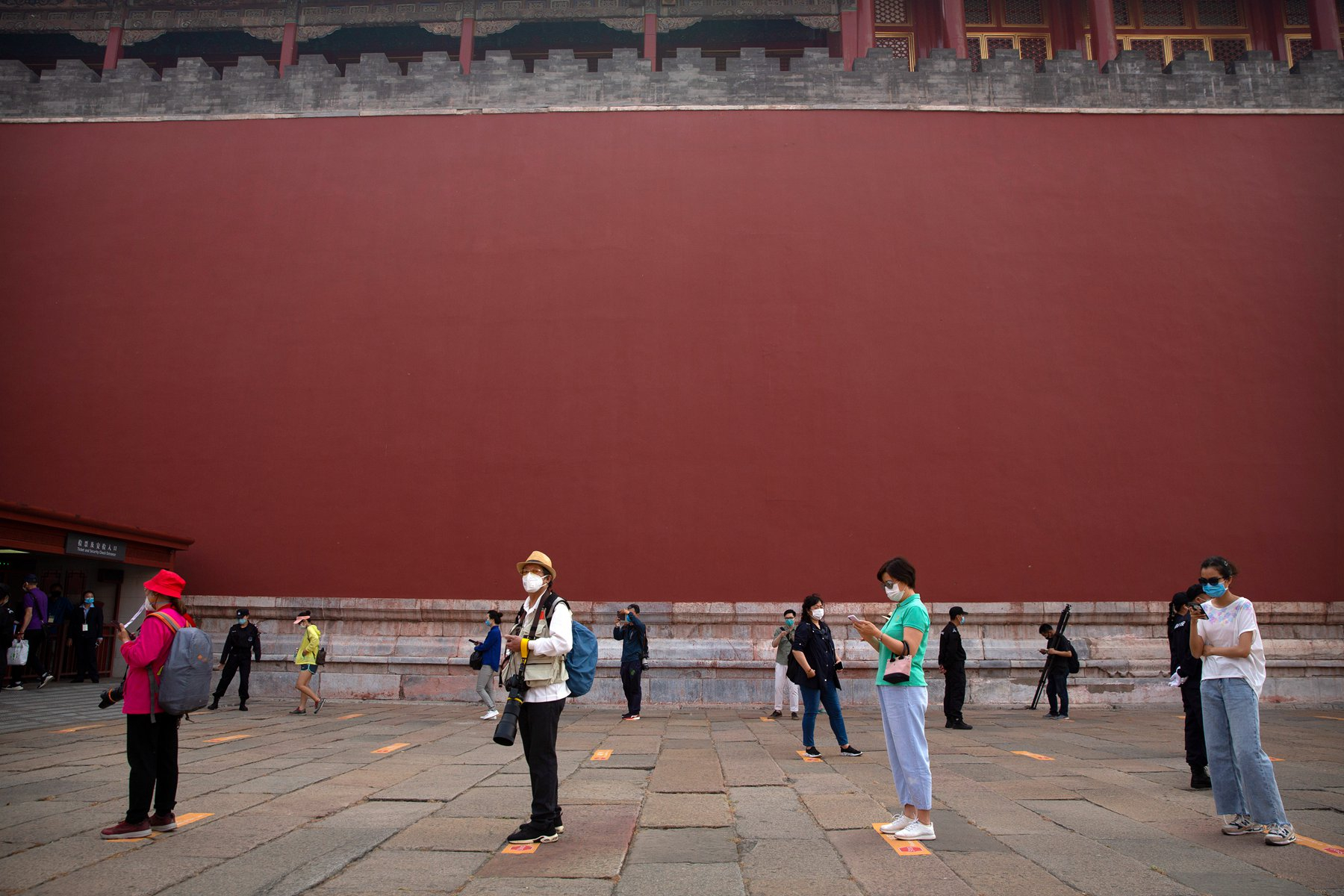The once epicenter of COIVD-19 pandemic Hubei Province announced on Friday that the emergency response level will be lowered to secondary on Saturday, which marks the second day of the May Day holiday.
It is also the last Chinese province to loosen controls over the pandemic. Two days ago, the capital Beijing also lowered the response level, and removed the 14-day quarantine requirement for low-risk areas.
Everything seems to be back on the track for the seven-day holiday beginning on May 1. But, is everything really the same as pre-coronavirus? Of course not, and here are some "rules of outing" you need to know before heading for a long-expected journey.
No. 1: The health QR code: A must ticket for all
All provinces in China have adopted a new pass: the health QR code.
The public can get their own health codes via an online platform, and each province also has their own health code, which can show whether the health code holder has traveled to any high-risk areas in the recent 14 days, and whether he or she has been in good health.
Before heading to your tourist destination, it is better to look at local requirements and be prepared.
No. 2: Reservation is a necessity

Tourists in the Palace Museum on May 1, after it reopened for the first time since January 24, 2020. /AP
Tourists in the Palace Museum on May 1, after it reopened for the first time since January 24, 2020. /AP
The Palace Museum in Beijing reopened on Friday, the first day of the holiday, after shutting its doors for nearly 100 days. However, only 5,000 tourists were allowed in on the first day, and all of them had to make reservations before entering.
The Palace Museum is not the only attraction requiring reservation. The National Museum, the Capital Museum and the Art Museum of Beijing Fine Art Academy have all set a limit on per day visitor volume.
In other cities, nearly all reopened attractions – even those with free entry – require reservation. For instance, in the West Lake in Hangzhou city, previously an open area, tourists need to make reservations online, so that the total number of tourists can be capped at 30 percent of usual capacity.
If you want an outing, do remember to book online.
No. 3: Not yet the time to throw away face masks
As of late April, many areas have also loosened requirements on wearing face masks. Experts said that for people in low-risk areas, they can take off face masks while staying in open, less populated space.
However, face masks are still necessary for densely populated areas such as companies, train stations, airports, museums, galleries and supermarkets. And many tourist attractions still have "keeping face masks on" as an entry requirement.
So it may be still too early to throw away your face masks, especially when traveling during the holiday.
No. 4: Social distancing is still important

Tourists keep social distance while waiting to enter the Palace Museum on May 1, 2020. /AP
Tourists keep social distance while waiting to enter the Palace Museum on May 1, 2020. /AP
Even with restrictions eased, social distancing is still important for protecting ourselves as well as others. There are some rules that could help to keep social distance.
For instance, while dining outside, leave enough space between you and your neighboring table. China has also been promoting serving individual portions rather than communal dining.
The new way of dining could help prevent diseases from spreading.
No. 5: Don't forget your vouchers
This is more of a tip instead of a rule.
With the pandemic control loosened, many areas have come up with measures to boost the consumption, and distributing vouchers and coupons to residents is one of them.
There are various types of vouchers, which can be used in supermarkets, restaurants, hotels, transportation, and tourist attractions. As of the end of April, more than 30 Chinese cities have already distributed billions of vouchers.
Pay attention to the local news, and it might add some fun for your holiday plan, as well as save you some money.
Cover image designer: Qu Bo